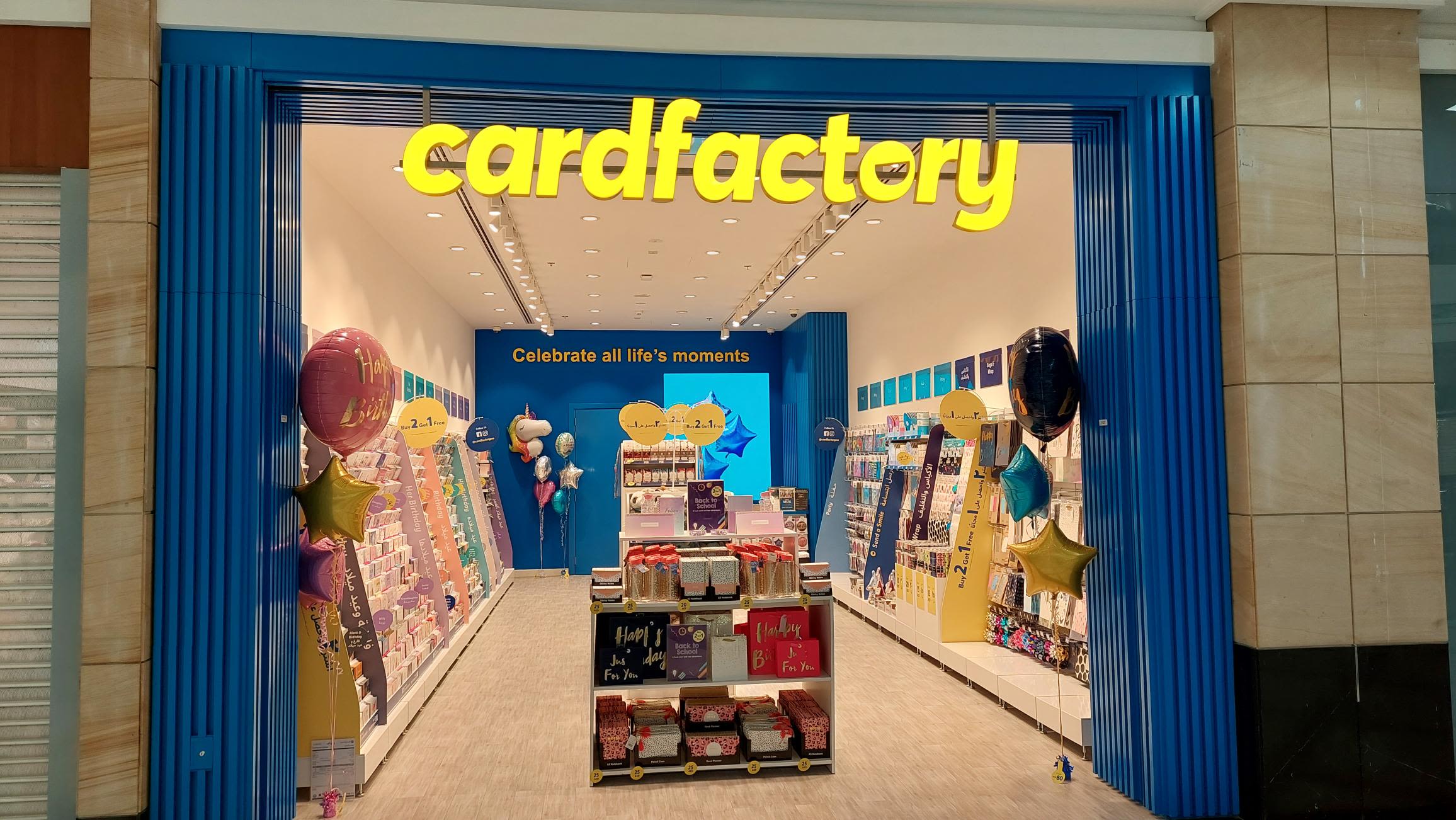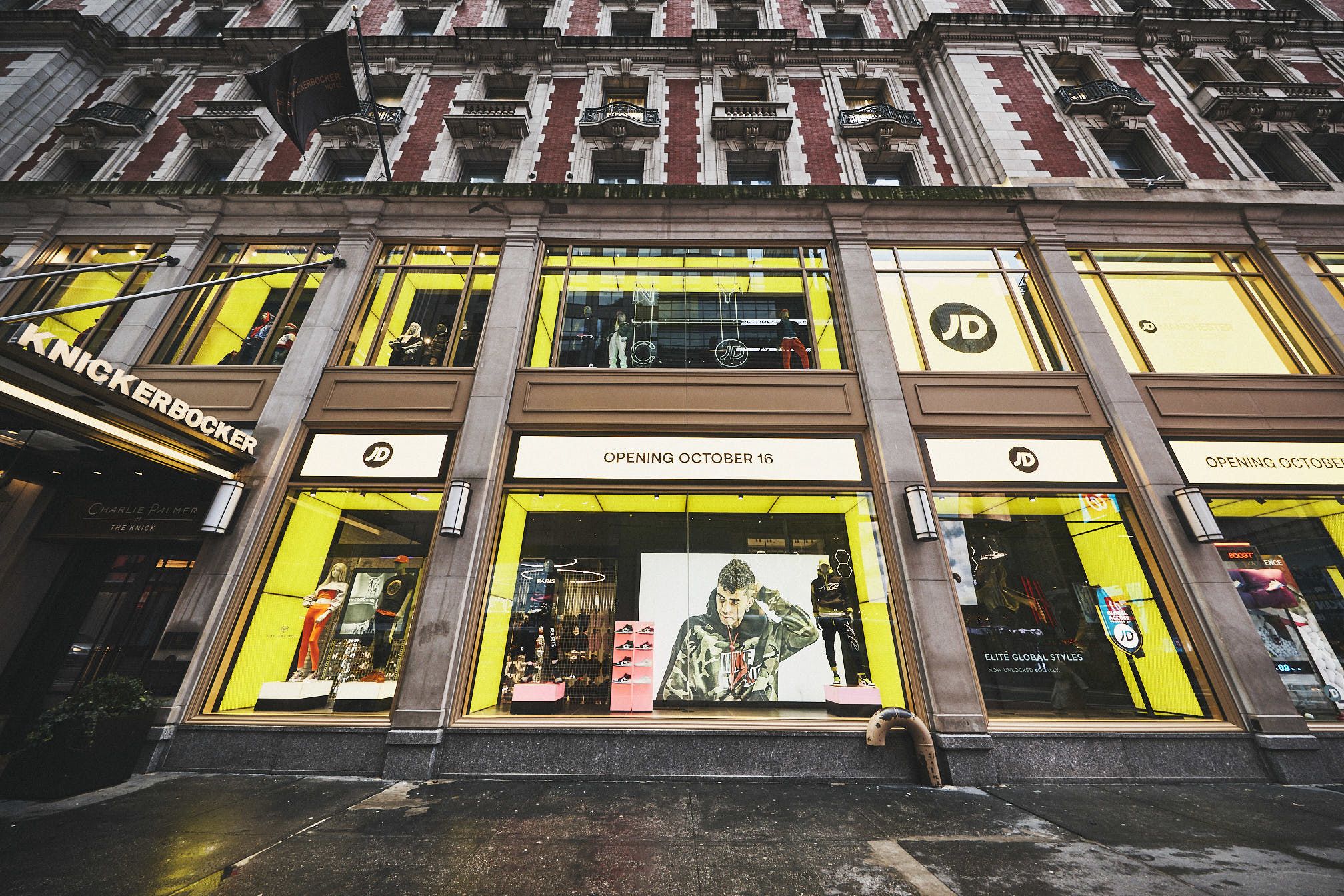
A significant number of the retail leaders interviewed cited international expansion as one of their top three key investment areas for 2024, including Primark, Johnstons of Elgin, Rixo, Mamas & Papas, BP, Molton Brown, Fat Face, Seasalt, Bravissimo and Secret Sales.
Businesses such as Primark already have a large and successful international presence, while others are either growing or putting in the foundations – such as customer support teams or analysing what their multichannel strategy needs to look like – to set themselves up for success.
For context, Primark has around 430 stores, with around 230 outside the UK and Ireland – meaning there are now more Primark (which operates under the Penneys fascia in Ireland) stores internationally than in its home territory.
More favourable economic predictions internationally in 2024 compared with the UK could make global growth a salient choice for retailers. The European Commission forecasts its 27 members’ economies will grow by an average of 1.7% next year, while the IMF predicts growth of 1.1% in the US and 2.4% in the Asia-Pacific region.
Key overseas opportunities for UK retailers
North America and the Middle East are key focus areas for UK retailers looking to open stores and build a presence internationally, but as ever businesses will need to do their due diligence to understand if their brand fits an overseas market.
Franchise agreements appear to be the direction of choice for retailers opening in the Middle East, with Card Factory opening its first of several stores in the region in July, thanks to a partnership with Liwa Trading Enterprises.
The greetings card retailer is set to open 36 new stores as part of the deal across the United Arab Emirates (UAE), Qatar, Kuwait, Saudi Arabia, Bahrain and Oman – starting with four in Dubai and Abu Dhabi this summer.
Card Factory reported in May 2023 that pre-tax profit was up by 368.5% to £52.4m in the 12 months to January 31, 2023, coming off the back of a sales surge of 27.1% to £463.4m.
JD Sports, which topped sales of £1bn in May, announced its first franchise agreement with Dubai-based retailer and distributor GMG in July, opening 50 stores under the JD fascia by 2028 as part of the 10-year agreement. The focus is on UAE, Saudi Arabia, Kuwait and Egypt.
Interestingly, the evolution of brochure and direct selling business Avon into an omnichannel retailer involves an ambitious store opening programme in Turkey, which is proving to be a testbed for the company’s physical retail offering.
It has 50 stores in Turkey now under a franchise model, but plans are in place to double that number going into 2024.
“Turkey has really been our playground for omnichannel access,” explains Neirynck. “We equip our representatives with the right furniture, the brand visual identity, and we recommend the right product ranges to ensure productivity. Then we train them, in a way, to open up their own retail stores.”
Retail sales are on the up in the US and are expected by the trade body National Retail Federation (NRF) to grow between 4% and 6% in 2023, compared with 2022. In total, NRF expects retail sales will reach between $5.13trn (£4.04trn) and $5.23trn (£4.12bn) this year.
Indeed, the 2023 forecast is above the pre-pandemic average annual retail sales growth rate of 3.6%, making the US a market to watch for UK retailers considering global growth.
Online overseas expansion is gaining more backing from the UK government, meaning it could be a pathway for growth for multiple businesses in the coming years.
On June 13, 2023, a new group was launched to directly advise the government on how to encourage 70,000 UK SMEs to trade internationally online and drive the UK economy. The Ecommerce Trade Commission, which has been convened by the Institute of Export & International Trade, will advise the Department for Business and Trade with support from Amazon, Alibaba, eBay, Google and Shopify.
It is early days, but this highlights how global expansion through ecommerce has been identified by the government as a way to help both individual companies and the wider UK economy.

Card Factory opened its first store in the Middle East in July 2023
Card Factory opened its first store in the Middle East in July 2023

JD Sports has signed an agreement for 50 stores in the Middle East
JD Sports has signed an agreement for 50 stores in the Middle East
New horizons for UK retail
Here we highlight four UK retailers that have prioritised international expansion in 2024

Fat Face
International development as a brand is the “number one” investment area for the year ahead at Fat Face, which opened its first stores in Canada in April 2023.
“We will continue with that expansion into 2024. So our largest investment will be in North America,” chief executive Crumbie explains.
The three Canada stores to date are located at Niagara-on-the-Lake, Barrie and Newmarket, all in Ontario. The move builds on the success Fat Face has experienced with the 20-plus stores it has opened in the US since expanding there in 2016.
A full Canadian website will be launched in 2024 and Crumbie views the shape of sales in the country to be similar to that which it experiences in the UK.
In terms of future international expansion, plans are at a nascent stage. The senior team prefers a more digital approach regarding expansion into Europe.

“We will continue with that expansion into 2024. So our largest investment will be in North America”

“The US is a big deal, but outside the US we’re still growing our store estate in places like France, Italy, Spain in particular, and also central and eastern Europe”
Primark
Primark has committed to 530 stores by the end of 2026 and, within that, 60 in the US – it currently has 21 stores there, so this is clearly a major area of focus and investment over the next three years.
Chief executive Marchant says: “We are now looking to head to Texas as a new state, as well as developing our business in the states we’re already in.
“We are in the process of finalising a new depot in Florida, again to support that US expansion. So the US is a big deal, but outside the US we’re still growing our store estate in all our existing markets, including the UK, with a focus on places like France, Italy, Spain in particular, and also central and eastern Europe.”
Having entered Slovakia in 2023 and with plans to open a first store in Hungary early in 2024, Primark looks set to expand its reach to 17 international markets, making it a clear global expansion success story for UK and Irish retail.
Secret Sales
Secret Sales recently raised $10m (£7.9m) in funding, much of which chief executive Griffin says will be used to elevate its “unique marketplace technology” to help fuel an ambitious international strategy. He says Secret Sales wants to become “the go-to destination for non-full-price retail in all main European markets by 2025”.
“The recent launches of the business in Belgium and the Netherlands have already resulted in impressive growth, accounting for 1,129 new brands and over £400m in live inventory in less than a year,” he explains.
“This growth was supported by the addition of localised business development managers to support the acquisition and subsequent scaling of new partners.
“By placing our focus on 12 additional European territories – each one of which will have its own business development manager – Secret Sales aims to replicate this success with each new expansion.”

“The launches in Belgium and the Netherlands have already resulted in impressive growth, accounting for 1,129 new brands and over £400m in live inventory in less than a year”

“We’ve invested in new serve-over offers in Wild Bean Cafe and we intend to continue to make this available at more sites across Europe”
BP
Joanne Hayward, vice-president for convenience in Europe at BP, says the group is expecting to invest £8bn in its growth engines between now and 2030 – one of which is convenience.
The target is to double the gross margin of the convenience operation, which means improving its proposition around food quality at the roadside.
“We’ve invested in new serve-over offers [goods served over the counter] in Wild Bean Cafe, which you can already find in two of our UK sites, and we intend to continue to make this available at more sites across Europe,” she says.
BP has opened one Wild Bean Cafe at a site in Spain and intends to launch a further nine in the country before the end of 2023. The raised food and drink offer has been identified as suitable for the Spanish market, particularly its tortillas, breads, olives and empanadillas, as well as other fresh bakery items.
Views from outside the UK
Retail Week in partnership with World Retail Congress | Zebra spoke to three leaders from retailers based outside the UK, all with successful tactics for driving sales growth and customer numbers in the coming months

Outfittery
Outfittery is expecting “much higher” year-on-year retail sales in 2023, with chief executive Julia Bösch suggesting the company’s launch in the UK is a key driver. Similar growth is predicted in 2024, too, supported by the fact the business serves both men and women now.
Technological investment is viewed as a key factor in Outfittery’s success to date, with tech and AI representing key areas of investment for 2024. “We offer a unique combination of AI and human stylists to deliver personalisation at scale,” explains Bösch.
“As our customers have outstandingly high retention, the majority of our business is repeat business.
“We know our customers very well and can therefore forecast accurately what they will need. We use AI to forecast demand and steer our inventory.”

“We know our customers very well and can therefore forecast accurately what they will need. We use AI to forecast demand and steer our inventory”

“We have invested in technology and are accelerating digital innovation as we drive online sales to deliver growth of more than 70% during our FY24 financial year”
Pick n Pay
South African FMCG retailer Pick n Pay is expecting “slightly higher” year-on-year sales growth in 2023 and 2024, despite what its chief executive Pieter Boone describes as “higher inflationary pressures and a flat economy” affecting consumers’ disposable income.
The retailer operates under the Pick n Pay, QualiSave, Boxer and Pick n Pay Clothing banners, with Boone saying the group’s expected growth comes during a period of significant economic turbulence in South Africa, which includes rolling blackouts known as “load-shedding”.
For the 12 months to February 26, 2023, Pick n Pay’s group turnover was up 8.9% year on year to R106.6bn (£4.4bn). Group pro-forma profit before tax was R678.4m (£28.1m), which was down 15.1% year on year, mainly due to rising energy costs.
That will impact profitability for Pick n Pay, according to Boone. “Continued load-shedding has imposed substantial practical challenges and financial costs on all businesses, including our group,” he explains.
“Food retailers are particularly vulnerable because, during load-shedding, we have to use expensive diesel generators to keep our stores open and our refrigerators running to sustain food.
“We are aggressively growing our Clothing business and Boxer superstores network – which we refer to as our growth engines for the business – by opening new stores in the correct locations through the country.
“We have also invested in technology and are accelerating digital innovation as we drive online sales to deliver growth of more than 70% during our FY24 financial year.”
Gebr. Heinemann
Global travel retailer Gebr. Heinemann is predicting “slightly higher” year-on-year sales in 2023 and 2024 as the business builds on what co-chief executive and owner Max Heinemann describes as “a strong comeback” in 2022 after the global pandemic.
Turnover for 2022 was €3.8bn (£3.27bn), up by 81% year on year and representing 79% of 2019 turnover, before the pandemic impacted travel markets. The company is also forecasting a 30% rise in sales this year as the travel market improves.
Heinemann says: “We are very optimistic that retail sales will develop positively. This development will be driven on the one hand by an expected increasing number of travellers.
“On the other hand, we have identified some focus markets for further business development, including the UK.
“We can deliver in a classical concession model, but are also a reliable joint venture partner for airports and local stakeholders as, for example, our successful joint ventures in Frankfurt and Amsterdam [airports] show.”
For chapter 5, click on Being the change below

“We have identified some focus markets for further business development, including the UK. We can deliver in a classical concession model, but are also a reliable joint venture partner for airports and local stakeholders”
